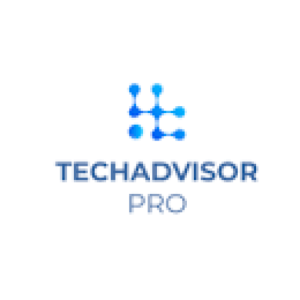B2B companies heavily rely on accurate, insightful data to make informed decisions. B2B data providers play a crucial role in gathering, refining, and delivering essential information that helps businesses identify new leads, optimize sales strategies, and stay competitive.
Choosing the right B2B data provider can enhance lead generation, refine market insights, and drive smarter decision-making, ultimately impacting a company’s growth trajectory.
This blog will help B2B professionals understand the role of data providers, the factors to consider when choosing one, and the benefits of partnering with the right provider.
1# Understanding the Role of a B2B Data Provider
What Services Do B2B Data Providers Offer?
B2B data providers gather and manage valuable information that B2B companies use to target and understand their customer base. Their services typically include:
- Data Collection: Sourcing data from various channels, such as social media, company websites, industry reports, and government records.
- Data Analysis: Providing analytical tools and insights to help interpret data patterns and trends.
- Data Enrichment: Enhancing raw data by adding additional attributes or insights, making it more valuable for decision-making.
How B2B Data Providers Support Marketing and Sales
Data providers assist B2B businesses in improving their marketing and sales operations by providing a thorough understanding of the target population.
Businesses may enhance lead targeting, pinpoint customer pain areas more precisely, and maximize customer engagement tactics with data-driven insights.
A B2B data provider might, for example, provide comprehensive demographic insights or lead score data that can assist sales teams in more efficiently prioritizing leads.
2# Key Factors to Consider When Choosing a B2B Data Provider
Selecting the right data provider is critical for accurate and actionable insights. Here are key factors to evaluate:
- Data Quality and Accuracy: Quality data is essential for making reliable business decisions. Look for providers who prioritize clean, updated data, ensuring that insights are based on accurate information.
- Industry Relevance: Providers with industry-specific knowledge offer data that aligns closely with business needs. Industry relevance ensures that the data is tailored to the unique characteristics and trends of the market, resulting in more accurate targeting.
- Data Compliance and Privacy: Compliance with data regulations, such as GDPR in Europe or CCPA in California, is crucial. A reliable provider should prioritize data security, ensuring they adhere to privacy standards that protect your business and customer data.
- Customization and Flexibility: The ability to customize data packages or analysis tools is a significant advantage. Look for providers who can tailor their offerings to match your specific goals, be it lead generation, market research, or customer segmentation.
- Cost-Effectiveness: While cost shouldn’t be the sole criterion, it’s essential to evaluate the price against the quality and depth of data provided. High-quality, reliable data often justifies a higher investment, as it can drive better ROI in the long term.
3# Evaluating Potential B2B Data Providers
When comparing different data providers, assess their credibility and relevance to your business. Here’s how to evaluate potential partners:
- Provider Credibility: Look at reviews, client testimonials, and case studies to gauge a provider’s reputation and reliability. Established providers often have a proven track record with other businesses in your industry.
- Relevant Questions to Ask: When speaking with potential providers, consider asking:
- Where does your data come from? This will help you understand the sources of their data and its reliability.
- How frequently do you update your data? Regular updates ensure that you’re working with the latest information.
- How do you ensure data compliance? Their approach to data privacy should align with current regulations.
- Scalability and Future Needs: As your business grows, so will your data needs. Choose a provider that can scale their offerings to accommodate future demands, whether it’s increased data volume or more sophisticated analysis tools.
4# Top Benefits of Partnering with a Reliable B2B Data Provider
A strong partnership with a quality B2B data provider can yield numerous advantages, including:
- Enhanced Lead Targeting: With accurate data, your marketing team can identify and target high-potential leads more effectively, resulting in higher conversion rates.
- Improved Customer Insights: Comprehensive data about your customers’ demographics, buying behaviors, and preferences allows for more personalized engagement, which can increase customer satisfaction and loyalty.
- Better Sales Conversions: Sales teams benefit from enriched data that helps them prioritize leads, nurture prospects, and focus on closing deals with high-value customers.
- Data-Driven Decision-Making: Reliable data supports strategic decision-making across all levels of the business, leading to more effective resource allocation, budgeting, and long-term planning.
Conclusion
Selecting the right B2B data provider is crucial for businesses seeking a competitive advantage. Companies should prioritize data quality, industry relevance, compliance, and customization to find a provider that meets their unique needs. Reliable providers not only support immediate goals like lead generation but also contribute to sustained growth and market success. Prioritizing quality and compliance over cost ensures meaningful business outcomes.
I hope you find the above content helpful. For more such informative content please visit TechadvisorPro.










